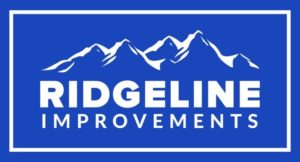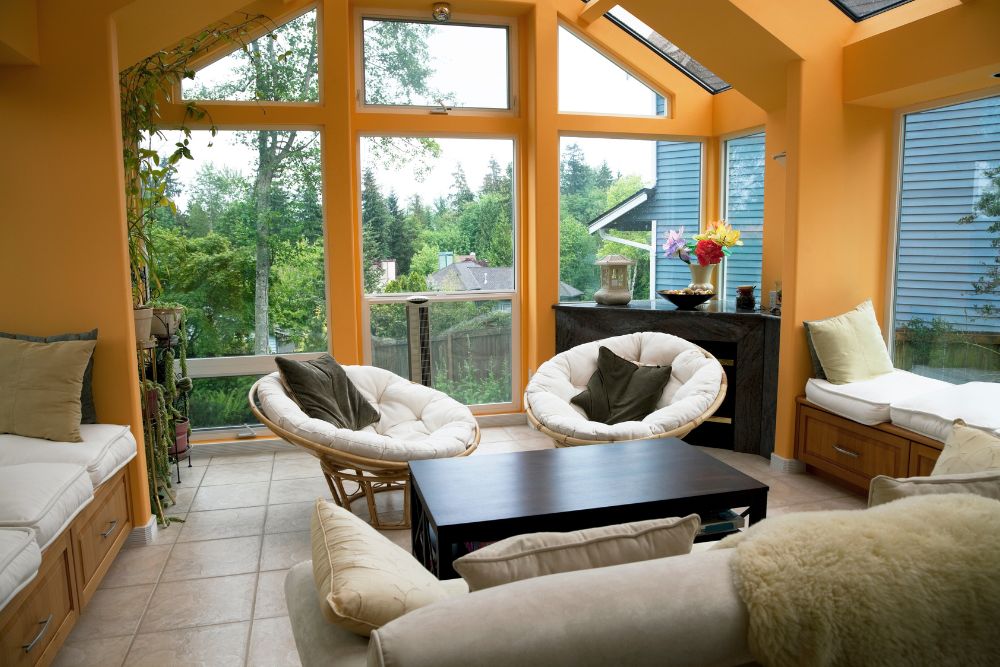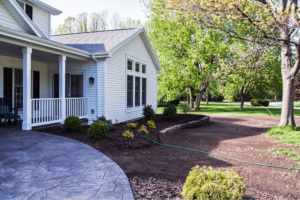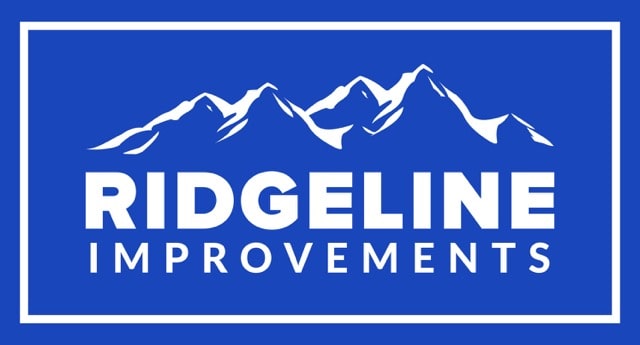Home is where the heart is, and over time, our needs and desires for our living spaces may evolve.
Whether you’re looking to expand your living area, enhance your home’s functionality, or simply add value to your property, home additions are a fantastic way to achieve your goals.
If you’re new to the world of home improvements and don’t know where to start, Ridgeline Improvements is here to provide you with the essential steps to plan your home addition project effectively.
Defining Your Vision: The First Steps in Planning a Home Addition
Before you dive headfirst into the exciting world of home additions, take a moment to reflect on your vision.
Here’s where you should start:
What Should You Ask Yourself?
- Purpose: Clearly define the purpose of your home addition. Knowing why you want to add on to your home will help guide your decisions throughout the process.
- Budget: Determine how much you’re willing and able to invest in your home addition. Your budget will greatly influence the scope and scale of your project.
- Aesthetics: Consider the design and style of your home. Your addition should seamlessly blend with the existing structure to maintain a cohesive and appealing look.
- Functionality: Think about the practical aspects of your addition. How will it improve your daily life? What features and amenities are essential?
- Resale Value: If you plan to sell your home in the future, consider the potential return on investment. Some additions may add more value to your property than others.
Choosing the Right Type of Addition: Sunroom, Extension, or Annex?
Once you’ve clarified your vision, it’s time to decide what type of addition best suits your needs and preferences.
The choice often comes down to three primary options:
Sunroom
A sunroom is a bright and airy space that’s typically enclosed with glass walls and a glass roof.
It provides an ideal place to relax, enjoy the outdoors, and soak in natural light.
Sunrooms are perfect for those who want to create a tranquil and vibrant space in their homes.
Extension
An extension involves increasing the square footage of your home, often by expanding existing rooms or adding entirely new ones.
This option is suitable for those looking to gain more living space, whether it’s a bigger kitchen, an additional bedroom, or a new entertainment area.
Annex
An annex is a separate structure added to your home, commonly used for specific purposes like a guesthouse, home office, or gym.
Annexes offer privacy and a clear distinction from the main house.
Budgeting Essentials: Determine Your Budget and Scope
Budgeting is a critical aspect of any home addition project.
Before you get too deep into the planning process, it’s essential to establish a realistic budget that aligns with your vision.
Here’s what you should consider:
Construction Costs
The bulk of your budget will go toward construction costs. This includes expenses for materials, labor, and contractor fees.
It’s essential that you obtain detailed quotes and estimates from contractors to accurately determine this portion of your budget.
Design and Architectural Fees
Designing your home addition and obtaining the necessary permits and blueprints involves costs.
Architectural and design professionals may charge fees for their services. Make sure you include these expenses in your budget!
Permits and Inspections
Before you can start your home addition project, you’ll likely need permits and inspections.
These are often associated with fees, which can vary depending on where you live and the complexity of your project.
Research the permitting process in your area and budget accordingly.
Contingency Fund
Unforeseen challenges can arise during the construction process, leading to unexpected expenses.
To account for these surprises, it’s wise to establish a contingency fund within your budget.
You should put aside around 10-15% of your total project budget for unforeseen costs. This safety net will help you manage unexpected issues without derailing your project.
Hiring the Pros: Find the Perfect Partner for Your Project

Choosing the right professionals to help bring your home addition to life is paramount to your project’s success.
Here are some key considerations and steps to ensure you make the right choices:
- Research and Referrals: Begin your search for professionals by asking family, friends, and neighbors for recommendations or looking at reviews online.
- Check Credentials: Look for professionals who are licensed and insured. This not only ensures they have the necessary skills but also protects you from any unforeseen liabilities.
- Portfolio Review: Ask to see the contractor’s portfolio of past projects. This can provide insight into their style, quality of work, and versatility.
- References: Request references from previous clients and make an effort to follow up with them. Ask about their experience working with the contractor and whether they were satisfied with the results.
Choosing the right professionals for your home addition project may require some time and effort, but it’s a critical step to make sure your project runs smoothly, and you get the results you’re looking for.
Don’t rush this decision, and be thorough in your research and due diligence to find the perfect partner for your project!
Legal and Regulatory Requirements
Ensuring that your home addition complies with legal and regulatory requirements is the cornerstone of a successful project.
Here’s why it matters:
- Permits and Approvals: Obtain necessary permits to avoid fines and legal troubles.
- Building Codes: Comply with building codes for safety and quality.
- Environmental Regulations: Adhere to environmental rules to protect your surroundings.
- Utility Services: Safely manage utility lines.
- Inspections: Pass inspections to avoid delays and added costs.
- Legal Liabilities: Avoid legal consequences by following regulations.
- Professional Guidance: Rely on experts for a smooth process and faster approvals.
By navigating these requirements with care, you’ll build your home addition on a solid legal foundation, ensuring a successful and hassle-free project.
Creating a Realistic Timeline: Managing Expectations for Your Home Improvements
When you’re planning on building a home addition, it’s important to understand how to manage your expectations.
Having a well-defined timeline is vital for a successful project! Here are some key points to consider in this regard:
- Scope Assessment: Understand the complexity of your project and its various phases.
- Professional Guidance: Consult with experts to gain insights into the project’s duration.
- Permitting Considerations: Factor in time for permits and regulatory approvals.
- Construction Phases: Recognize that each construction phase has its own timeline.
- Unforeseen Challenges: Be prepared for unexpected issues that may cause delays.
- Project Coordination: Efficient project management is essential for staying on schedule.
- Quality over Speed: Prioritize quality work to prevent costly mistakes.
- Regular Updates: Stay in the loop with frequent project status updates.
- Flexibility: Allow room for adjustments in your timeline to adapt to unexpected changes.
By keeping these points in mind, you can set a realistic timeline for your home improvement project and effectively manage your expectations throughout the process.
Transform Your Home with Ridgeline Improvements
If you’re ready to turn your home addition vision into reality, don’t hesitate to reach out to the experts at Ridgeline Improvements.
Our team is dedicated to making your dreams come true and ensuring your project runs smoothly, on time, and within budget.
Contact Ridgeline Improvements today, and we’ll help you transform your home into the perfect living space you’ve always wanted.
Your dream home is just a click away!





